The preeminent goal of a core is to provide excellent service to a growing cadre of investigators from an enlarging circle of departments and institutions. Cores aim to maintain growth and enhance sustainability of core services. Most cores have three primary goals: service, teaching, and creation of new knowledge. Each core provides access to the latest techniques required by investigators to support hypothesis-driven research. Cores develop and implement training and education workshops. Cores also develop innovative and improved techniques, new technologies or applications of expertise in its field. By centralizing services and resources within cores, researchers are more efficiently served and the use of equipment is maximized. Through the triad of service, education, and innovation, cores support investigators at the university and the wider research community in conducting research that seeks to gain new knowledge about diseases and facilitate translation.

The Pacific Center for Emerging Infectious Diseases Research provides an ABSL-3/BSL-3 Biocontainment Core. Research on microbial agents, which cause lethal diseases in humans and for which effective drugs or preventive vaccines are not available, must be conducted by well-trained investigators in specially built, well-maintained laboratories. The BSL-3/ABSL-3 Biocontainment Core encourages investigators at the university and the wider research community.
Contact: Vivek R. Nerukar, PhD | nerurkar@hawaii.edu | (808) 692-1567
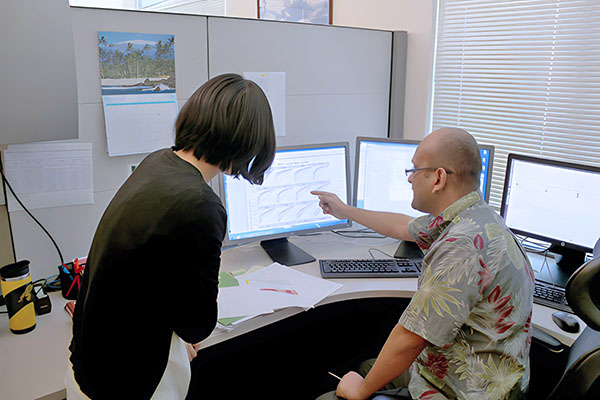
The Bioinformatics Core Facility serves as a centralized resource for providing expert and timely bioinformatics consulting, analysis, collaborative research, management, and training solutions for high-throughput data. The data include different kinds of “omics” data (e.g., genomics, transcriptomics, epigenomes, proteomics, metabolomics, metagenomics data), which are generated from a variety of platforms such as PCR, microarray, NGS, mass-spec, and so on. The core provides a high-level expertise in bioinformatics, ensuring the support needed to design, conduct, analyze, interpret and manage results requiring or facilitated by informatics applications. Bioinformatics support will be integrated into all phases of basic, clinical and translational research through a coordinated program of quantitative health sciences consultation and analysis.
The Bioinformatics Core Facility aims to build and maintain an infrastructure that enables the application of strong bioinformatics solutions with a measurable impact on the ability of JABSOM and UH investigators to both publish their work and obtain new funding.
Contact: Youping Deng, PhD | dengy@hawaii.edu | (808) 692-1664
Website: https://qhs.jabsom.hawaii.edu/bioinformatics-core
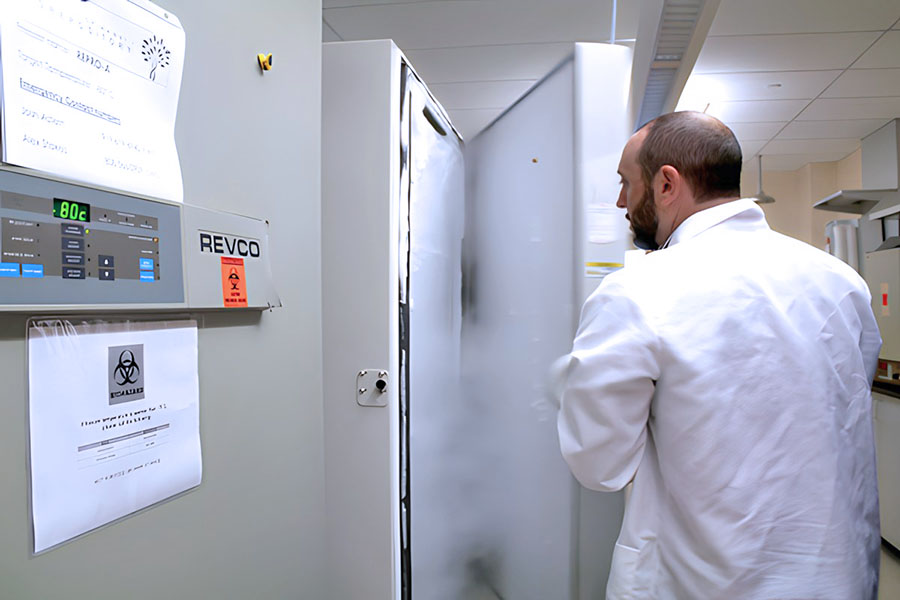
The University of Hawaiʻi Biorepository is a non-commercial, NIH-sponsored, core facility that provides biomedical researchers restricted access to human biological samples and clinical data. The Biorepository has three major resources: Human Reproductive Biospecimen Repository, Comprehensive Human Organ and Tissue Bank, and an in vivo Model Resource. The ability to move research into human tissues increases the direct human relevance and applicability of that research. The Biorepository core is the only fully inclusive human tissue biorepository in the State of Hawaiʻi, providing a wide range of fresh-frozen human tissues or subcellular tissue fractions. The tissue and extracts in the Core are derived from our various populations throughout Hawaiʻi and the Greater Pacific. This core is able to collect comparatively large numbers of samples from multiple donors that allow for appropriate powering of studies with a number of subgroups.
Contact: Men-Jean Lee, MD | mjlee3@hawaii.edu | (808) 203-6507

A strong research design and quantitative support play a critical role in the long-term success of clinical and translational research and education enterprises. Current research studies involve complex study design and generate complicated multivariate data, which require quantitative expertise. The Biostatistics Core Facility provides biostatistical and quantitative health collaboration and research support to basic science, clinical, and translational investigators. The office specializes in study design and data analysis, participates in grant proposal development, conducts methodology research, and provides education in biostatistics and data management areas.
Contact: Hyeong Jun Ahn, PhD | hjahn@hawaii.edu | (808) 692-1822
Website: https://qhs.jabsom.hawaii.edu/biostatistics-core
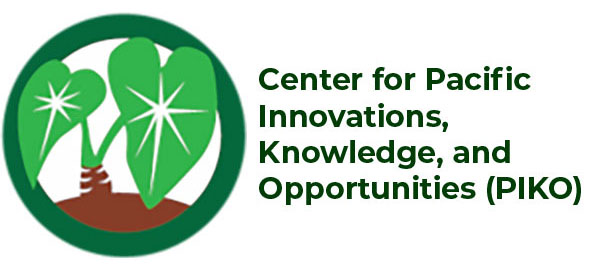
The Biostatistics, Epidemiology, and Research Design (BERD) Core will enhance methods, data collection, and data analysis, and will increase mentoring opportunities in seven component areas of Biostatistics, Epidemiology, Research Design, Data Science, Psychometrics, Mixed Methods, and Economic Analysis to increase the overall capacity for high-quality clinical and translational research. Particularly innovative features of the BERD Core include the analysis and visualization of extremely large datasets (data science), and the analysis of cost-effectiveness and sustainability of interventions (health economics). A ‘Request for Core Support’ link is available on their website.
Website: https://piko.jabsom.hawaii.edu/portfolio-item/data-analysis/
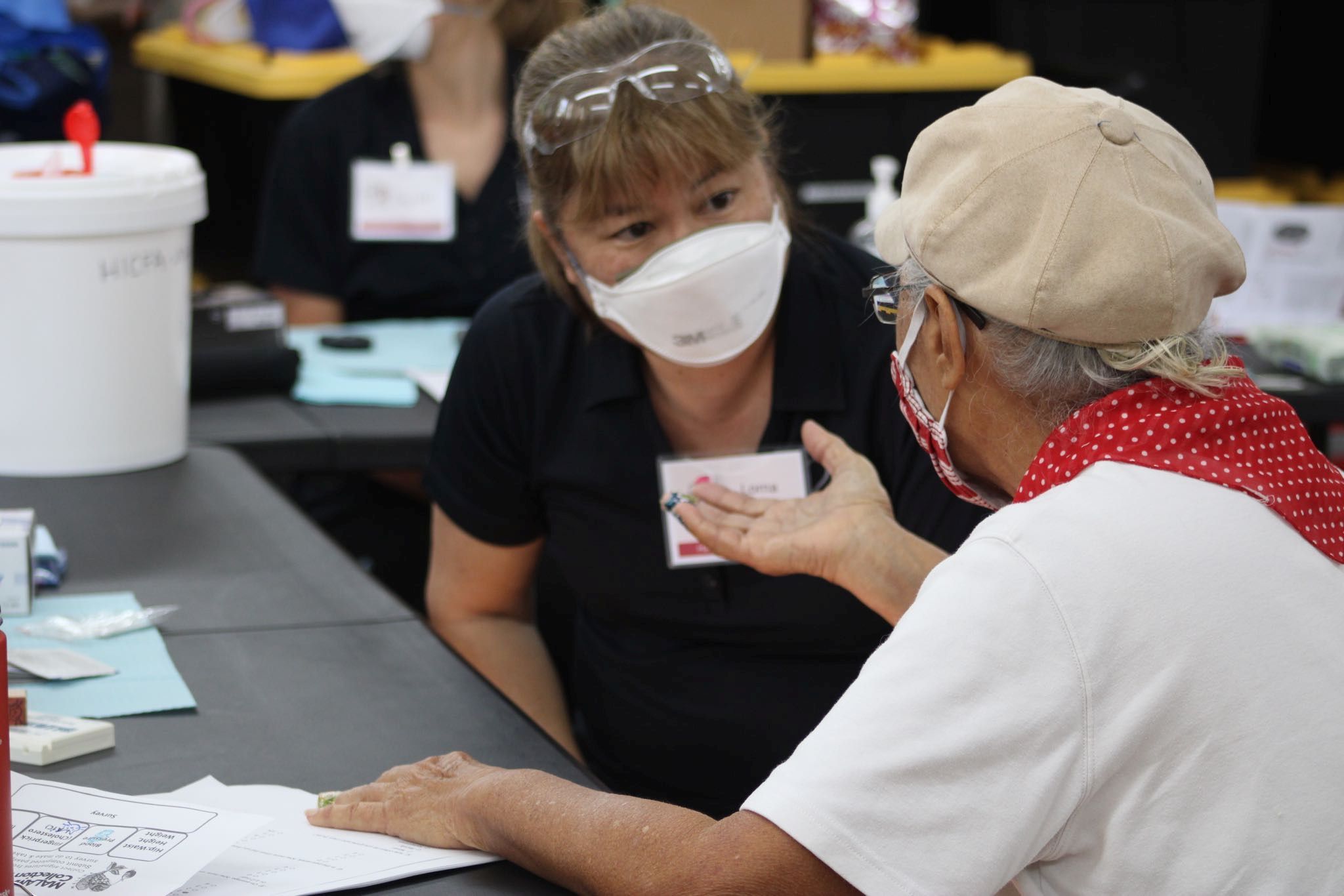
The Clinical Research and Regulatory Support (CRRS) Core will provide the investigators with the clinical research expertise, resources, and facilities needed to conduct high-quality clinical and translational research. The CRRS Core will mentor clinical and translational research (CTR) investigators on the practice aspects of conducting high-quality CTR, and enable direct access to critical CTR implementation resources and facilities.
Contact: Cecilia Shikuma, MD | shikuma@hawaii.edu
Website: https://piko.jabsom.hawaii.edu/clinical-research-and-regulatory-support-core/
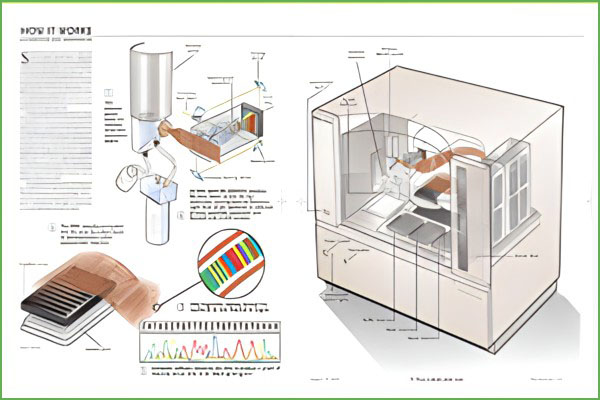
The Genomics and Bioinformatics Shared Resource (GBSR) offers a central service that uses cutting-edge and high-throughput genomic technologies combined with expert data analysis. The principal goal for the GBSR is to provide timely, affordable, high quality genomic analyses and a wide range of bioinformatic services with a fast turnaround, as well as technical and scientific consultation, collaboration and initial data interpretation.
Contact for Genomics: Maarit Tiirikainen, PhD | maarit@cc.hawaii.edu | (808) 440-4570
Contact for Bioinformatics: Youping Deng, PhD | dengy@hawaii.edu| (808) 692-1664
Website: https://www.uhcancercenter.org/research/shared-resources/genomics-and-bioinformatics
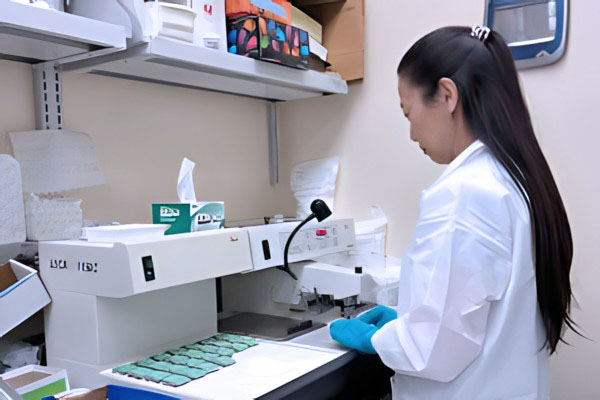
The Histopathology Core at the John A. Burns School of Medicine is supported with grants from the National Institute on Minority Health and Health Disparities and the National Institute of General Medical Sciences. This core provides routine histology processing, special stains and immunohistological techniques. The core also provides technical assistance, training, and consultation in histological techniques to staff, students, and investigators throughout the University on a cost-recovery basis.
Contact: Mariana Gerschenson, PhD | gerschen@hawaii.edu | (808) 692-1519
Website: http://histocore.jabsom.hawaii.edu

We provide a core for the use of investigators at the University, and, by special arrangement, for investigators anywhere in Hawaii and in other IDeA and non-IDeA states. We provide rodent metabolic phenotyping, murine echocardiography, blood pressure determinations, surgical procedures and phlebotomy, real-time metabolic assessment, analyses of lipoprotein fractions and subfractions in fasting serum or plasma, animal CT scans and MRIs, as well as assistance with mouse husbandry and genotyping.
Contacts: Olivier Le Saux, PhD | lesaux@hawaii.edu | (808) 692-1504
Noemi Polgar, PhD | polgar@hawaii.edu | (808) 692-1951
Website: https://drc.jabsom.hawaii.edu/cores/metabolic-analytic-core.html
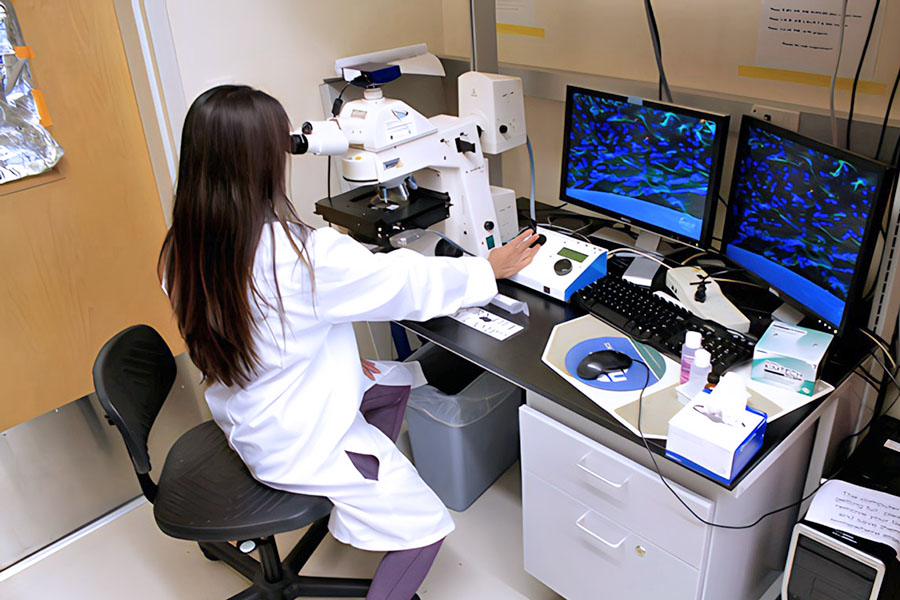
The Microscopy and Imaging Core offers access to a wide variety of conventional and confocal microscopes, in addition to optical preclinical imaging instrumentation. Our dedicated staff provides technical assistance, training, and consultation to users of all levels of experience. The core’s instrumentation is located in the JABSOM Biosciences Building on the Kakaʻako Health Sciences Campus. It is open to investigators throughout the University on a cost-recovery basis.
Contact: Matthew Pitts, PhD | mwpitts@hawaii.edu | (808) 441-7706
Website: https://hsmic.jabsom.hawaii.edu
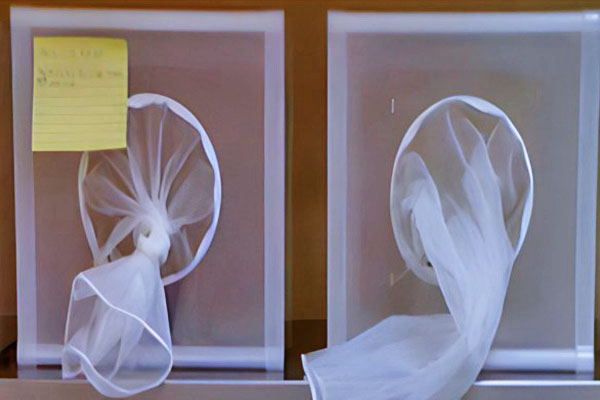
The Pacific Center for Emerging Infectious Diseases Research provides a Molecular and Cellular Immunology Core that provides the sole resource for flow cytometry, cell sorting and state-of-the-art immunological services in Hawaiʻi. Emphasis has also been applied to developing new or customized immunological methods for core users. In addition, regularly scheduled training sessions are held to enrich the educational and mentoring experience for investigators, faculty and students across the university and broader research community.
Contact: George Hui, PhD | ghui@hawaii.edu | (808) 692-1609
Website: https://pceidr.jabsom.hawaii.edu/
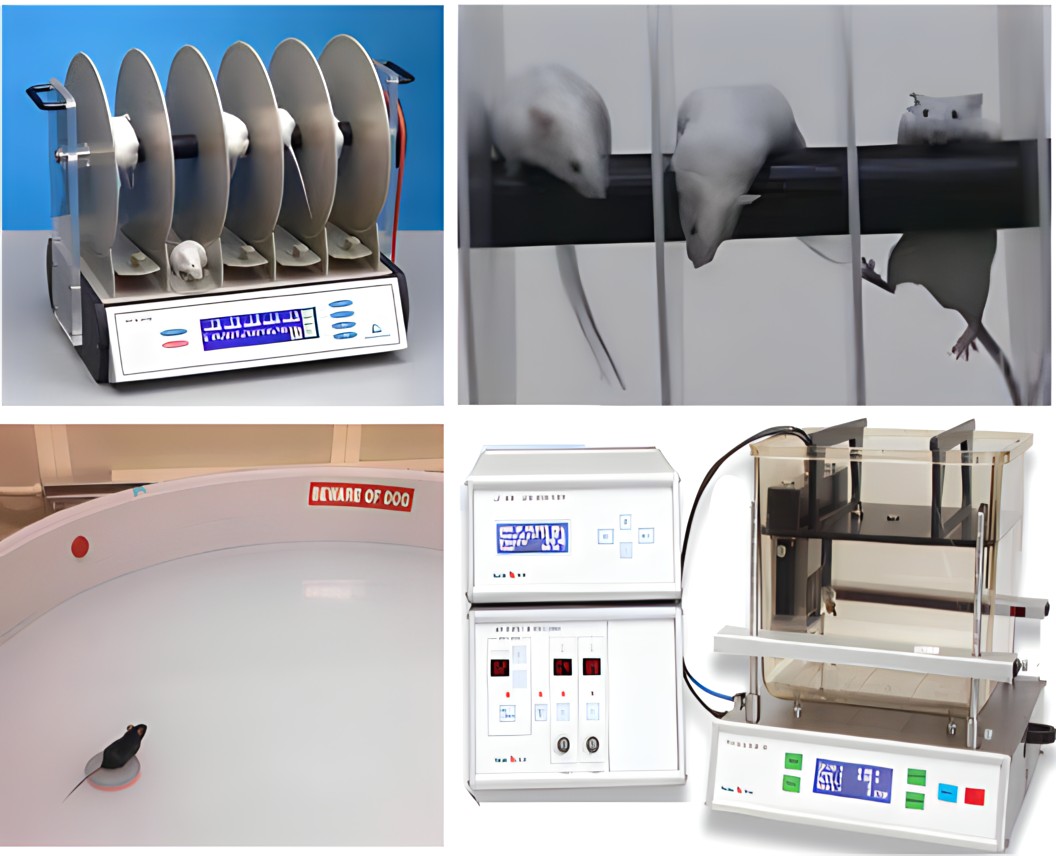
This facility provides expertise and equipment for evaluation of learning and memory, emotion and stress-related behaviors in mice, via two multi-purpose modular behavior assessment systems consisting of nine behavioral assessment paradigms each.
Contact: Matthew Pitts, PhD | mwpitts@hawaii.edu | (808) 692-1518
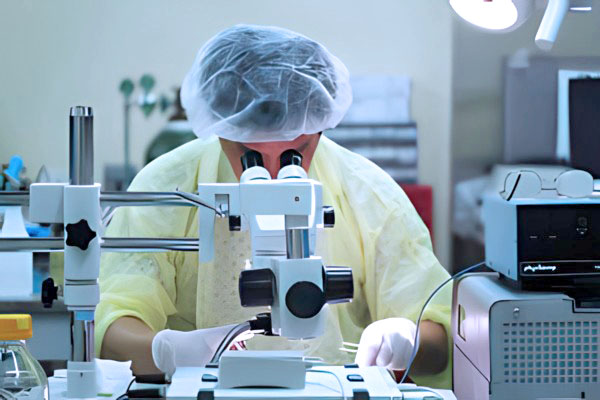
The Center for Cardiovascular Research provides a Murine Cardiovascular Phenotyping Core for the use of investigators at the University, and by special arrangement, for investigators anywhere in Hawaiʻi. This core can provide murine echocardiography, blood pressure determinations, surgical procedures and phlebotomy, as well as assistance with mouse husbandry and genotyping.
Contact: Ralph Shohet, MD | shohet@hawaii.edu | (808) 692-1469
Website: https://ccr.jabsom.hawaii.edu/facilities-cores/
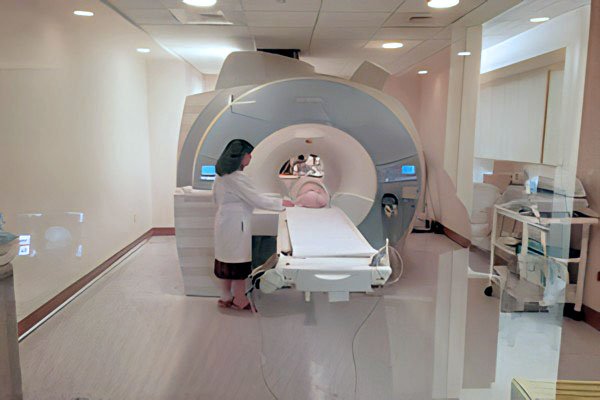
The Magnetic Resonance Imaging (MRI) Research Center is located at The Queen’s Medical Center. Housed there is a 3 Tesla MRI Scanner that is dedicated to basic and clinical research. The RCMI MRI Core operates through The Queen’s MRI Research Center to provide technical support and training for clinical investigators, in particular those at the junior level, and allow support of pilot studies and studies with new technical approaches to investigate diseases that disproportionately impact the health of our local community.
Contact: V. Andrew Stenger, PhD | stenger@hawaii.edu | (808) 691-5159
Website: https://mri.jabsom.hawaii.edu/
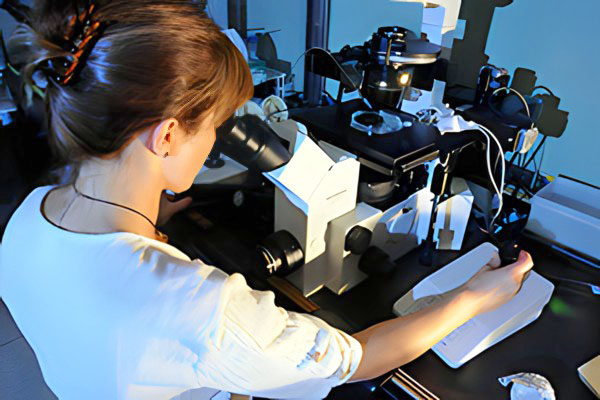
The Transgenic and Embryonic Stem Cell Gene Targeting Core is a state-of-the-art facility with the expertise in the production of genetically altered subjects. Transgenic subjects carrying new or novel genes are created by microinjection of DNA into the pronuclei of fertilized eggs. In this core, highly experienced personnel produce transgenic and knock-out subjects for UH investigators at a very reasonable cost and with very short lead times. The basic services of the Transgenic Core facility are DNA Injection, Embryonic Stem Cell Injection, and Embryo Freezing. In addition to these services, the Transgenic Core Facility offers various techniques to the research community including Embryo Culture, Embryo Transfer, Embryo Micromanipulation, Mouse In Vitro Fertilization, and Mouse Cloning Services.
Contact: W. Steven Ward, PhD | wward@hawaii.edu | (808) 956-5189
Website: https://www.ibr.hawaii.edu/tmii/